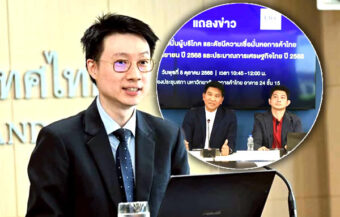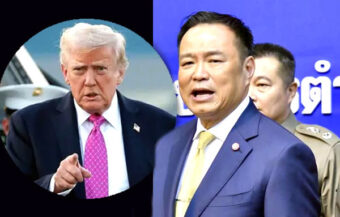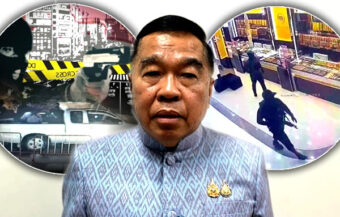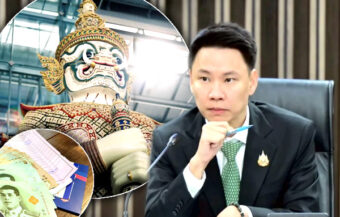Chinese-owned EV manufacturers in Thailand face a crisis with a surplus of unsold cars. They demand urgent government intervention. Failure to meet production quotas could lead to hefty fines and repayment of subsidies already issued.
An urgent decision is required by a Thai government panel chaired by the Prime Minister. It comes as Chinese-owned EV car production firms in Thailand are facing a crisis. In short, they are faced with a glut of unsold cars, including imports from China. However, the firms are committed to meeting government production quotas for markets that have not transpired. At the same time, failure to produce the cars will lead to demands for repayment of expensive subsidies already paid, in addition to steep fines, particularly for twice the import duties waived on imported vehicles currently being stored in warehouses unsold.
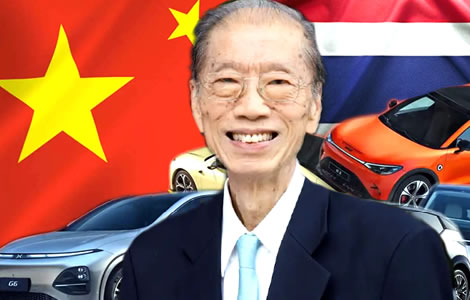
Thailand’s nascent EV industry is crying out for help. It follows consultations last month between the Chinese-dominated sector and China’s embassy in Bangkok.
The cry for help has been articulated by the Federation of Thai Industries (FTI) Vice Chairman Surapong Paisitpatanapong. Mr. Surapong has this year already highlighted the impact on the kingdom’s traditional automotive sector.
“At least eight Chinese EV makers are waiting to have talks with the government. They are worried about the oversupply of EVs in the market,” said Surapong Paisitpatanapong, vice-chairman of the FTI and spokesman for the federation’s Automotive Industry Club.
Chinese EV firms seek urgent meeting with officials amid declining demand and production quotas
The Chinese firms want to see government policies and terms revised. In brief, they argue that the conditions they entered into cannot be met.
At length, this is ultimately due to sluggish demand for EV cars. Chinese firms are preparing to push ahead with their request to relax the requirements. This can only be decided by the National Electric Vehicle Policy Committee, chaired by Prime Minister Paetongtarn Shinawatra. The Chinese firms are calling for an urgent meeting of the panel.
Previously, the Chinese automakers, boosted by optimistic growth projections, enthusiastically took part in the Thai government’s incentive schemes. Certainly, these schemes have now proved ill-founded.
Basically, the demand for EV cars has declined. At the same time, the market worldwide and in Thailand has seen demand for HEV or hybrid cars pick up.
Global decline in EV sales raises concerns for Thai manufacturers and impacts on government schemes
Under the government’s schemes, Chinese firms availed of excise duty waivers and generous subsidy payments. However, they find themselves with not only the demand to repay these monies but stiff fines at the same time.
Across the world, sales of EV cars are falling. This comes following consistent and disturbing reports of consumer dissatisfaction with the vehicles. Previously, Australia had been an outlet for exported EVs from Thailand.
However, sales of EVs there are also plummeting. Indeed, the trend is not unlike that seen in Thailand.
Industry insiders in the kingdom claim that sales of EVs are up on last year. Certainly, that is true. For instance, from January 1st to July 31st, 2024, 43,411 EVs were sold in Thailand. In contrast, in 2023, the corresponding figure was 36,861. In short, this shows a 17.77% rise.
However, the trend of EV car sales this year is more disappointing. The 2024 total includes 13,653 cars sold in January.
Therefore, the sales of EV cars from February 1st to July 31st, 2024, over a six-month period, come in at only 29,758. In contrast, the figure for 2023 was 33,844. In summary, sales of EV cars for the six months to July 31st, 2024, were 12.07% lower than last year.
Australian market mirrors Thailand’s struggles as EV demand declines and concerns over infrastructure grow
This trend is also being seen in Australia. In that market, year-on-year sales of EV cars slipped in both July and August 2024.
At the same time, demand for EVs is also flagging globally, with European sales declining by 5% year on year in June 2024. Certainly, this trend is simultaneously being reported in the United States.
Indeed, some European and Scandinavian countries are showing extremely sharp falls in EV car sales. In short, the problems relate to driver unease at a lack of charging stations and a lack of second-hand value.
In addition, there are growing concerns related to insurance policies. Indeed, Thai insurers reported at the end of June that no new policies relating to EV cars were being issued.
In the meantime, both the United States and Europe have imposed steep tariffs on cheaper EV cars from China. There are also well-founded fears that such sanctions could later be imposed on Chinese-owned manufacturers in Thailand.
Previously, this is what occurred when Chinese firms offshore solar panel production to the kingdom.
Chinese manufacturers face challenges with imported EV stockpiles. Promotion scheme compliance is a problem
In the meantime, Chinese firms that have been paid subsidies by the Thai government are in a bind. The investment schemes offered by Thailand are now proving hard to comply with.
Furthermore, there are reportedly hundreds of thousands of already imported EVs from China being stored in warehouses. In brief, the cars cannot be sold. At the same time, the Chinese manufacturers face investigation over efforts to sell off the stockpile at massive discounts due to Thai consumer protection laws.
Top Thai insurer says no more new policies for EV cars. Later, it emphasised renewals case by case
European Union votes to impose steep tariffs on imported Chinese cars. Germany stands to lose out
EV sector crisis as Chinese firms are trapped between lack of demand and government tax penalties
The companies impacted are BYD, Changan, Great Wall Motor, MG, GAC Aion, Omoda & Jaecoo, Neta, and Zeekr.
At this time, they are seriously concerned about the position they find themselves in. Meanwhile, the manufacturers continue to deflect on what is a slump in demand for EV technology. Instead, they blame the lack of finance being made available to consumers this year. In addition, weak Thai economic growth is cited.
Hybrid electric vehicle sales surge as electric vehicle market faces a crisis in Thailand and worldwide
Of course, in the meantime, sales of HEVs continue to grow.
In short, this is an emerging debacle caused by government interference in the commercial marketplace. Indeed, it bears all the hallmarks of a Beijing-inspired command and control policy that has gone wrong.
Certainly, this policy has damaged Thailand’s traditional and predominantly Japanese-owned car industry.
In the meantime, the Chinese firms in Thailand are seeking leeway on the agreed production targets. These were set between the government and Chinese manufacturers for the production of new EV cars in Thailand, cars that presently there is no viable marketplace for.
The schemes involved no less than 23 Chinese firms. Despite what is happening, the industry continues to believe that EV sales in Thailand will rise.
Nonetheless, it is already expected that this year sales will be well below target. Indeed, they will be lucky to match the level seen in 2023. In the meantime, however, sales of HEV or hybrid electric cars are surging. They are up 62% year on year.
In short, the market has spoken. Policymakers, as well as business concerns, must adapt accordingly.
Join the Thai News forum, follow Thai Examiner on Facebook here
Receive all our stories as they come out on Telegram here
Follow Thai Examiner here
Further reading:
EV sector crisis as Chinese firms are trapped between lack of demand and government tax penalties
Thailand changes tack as EV revolution turns into a damp squib with warehouses full of unsold cars
Top Thai insurer says no more new policies for EV cars. Later, it emphasised renewals case by case
Lack of coherence in government policy is the root cause of Thailand’s massive economic problems
Disturbing questions that must be confronted over Thailand’s reeling economy are China and EV cars
First-quarter GDP growth surprises analysts based on higher tourism and consumer spending growth
Central bank holds interest rates. Economy will grow 2.6% in 2024 as Srettha pushes home ownership






